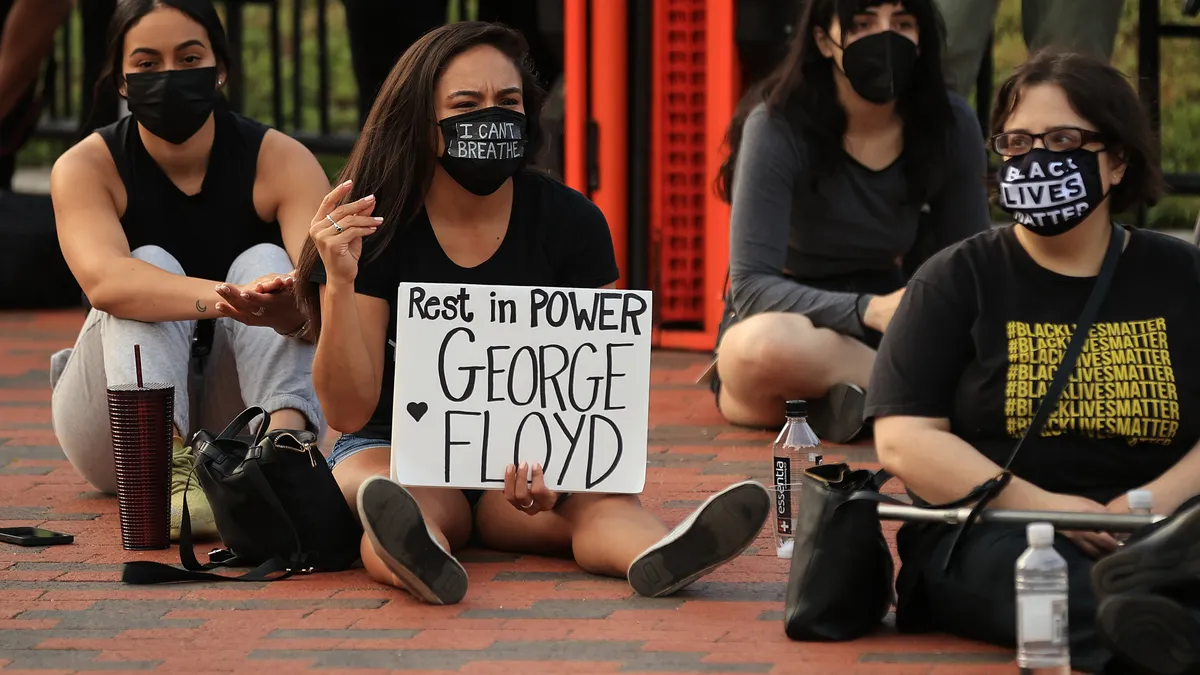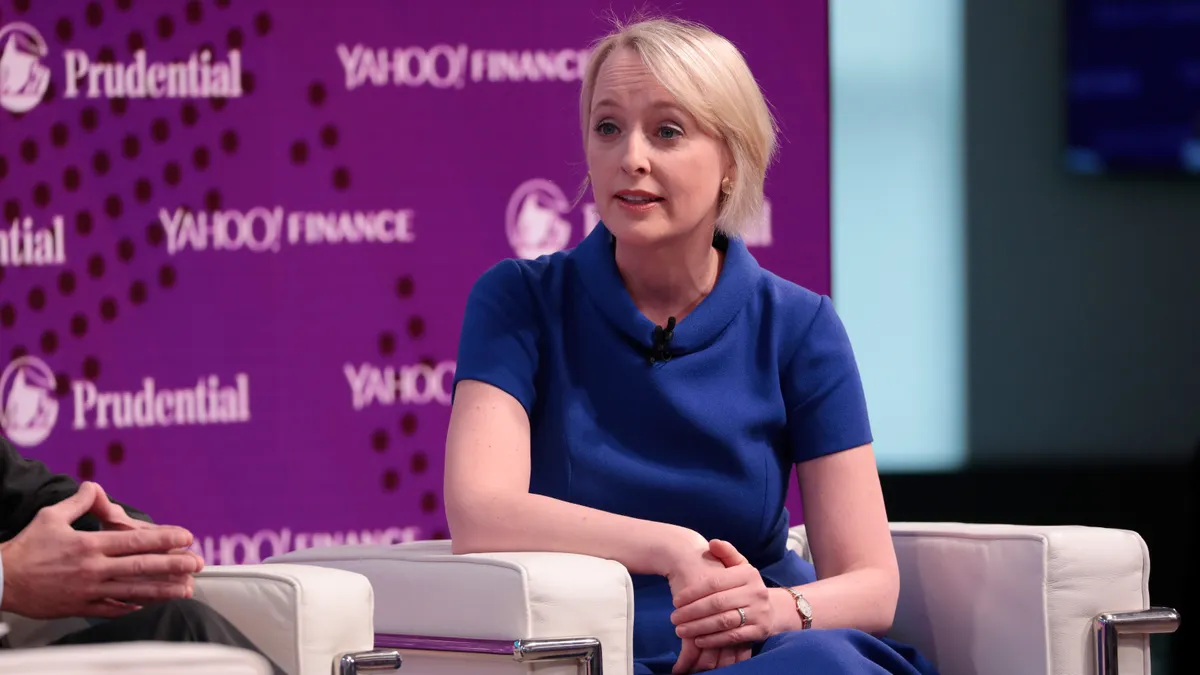From Donald Trump to abortion rights, Joe Biden to Israel and Hamas, seemingly everyone has a view on political topics — and those views are increasingly moving into the workplace.
Companies are mobilizing their legal and human resources departments as more people express their opinions on divisive subjects on social media and among their colleagues. The culture wars, pitting so-called red and blue-leaning voters, ratcheted up a few degrees after the Israel-Hamas war began in October, leading to mass protests in support of each side.
Given the rising temperature, Seyfarth Shaw created a “cultural flashpoints” task force in mid-2023 to help clients who’ve been trying to navigate the tricky terrain, said Sam Schwartz-Fenwick, a Seyfarth Shaw partner in Chicago who handles employment issues. “We were getting constant calls from clients,” he said.
The rise of hybrid work, remote work and the “increasingly blurry” boundaries between off-duty and on-duty employee conduct have made workplace politics a difficult issue to manage, Dawn Solowey, a Seyfarth Shaw partner specializing in employment law, said June 13 on a webcast the firm hosted.
“We handle a lot of questions from clients where you know an employee has brought in a screenshot of something that was posted on social media and says, ‘This is what Fred down the hall was posting on Twitter and I don't feel safe working with him anymore,’” Solowey said. “And so at that point this isn't some esoteric statement that's made out in the world; this is something that has actually come to your HR department or to your in-house legal department and is now impacting your workplace.”
Pandemic-era commentary
The COVID pandemic in 2020 opened the gates of political expression at the workplace, Schwartz-Fenwick told Legal Dive June 21. “You had large numbers of people leave their work environment and work from home,” he said. “That broke down a lot of the barriers that people had put up between their work life and their home life. I also think it was the really dramatic way in which there was an outcry amongst large segments of the population to employer vaccine mandates. That really gave voice to people who hadn’t previously shared those views publicly.”
Meanwhile, the May 2020 murder of George Floyd by police in Minnesota — and the surge of support for the Black Lives Matter movement — also drew a wide response from many U.S. corporations, he said. The corporate response “heightened expectations going forward for what speech should be talked about at work” and the expectation among many workers that employers should have positions on many social issues, he said.
“At a time where we encourage employees to bring their whole self to work we are also finding that employees bring a lot of political opinions that they express in and out of the workplace and that are sometimes very divergent on hot button issues,” said Solowey.
Complicating the complexities, federal agencies have conflicting views “over what steps employers can take with respect to off-duty conduct,” said Schwartz-Fenwick.
The National Labor Relations Board says that disciplining an employee for off-duty conduct, such as social media posts, can violate the National Labor Relations Act because the employer may be encroaching on the worker’s right to engage in protected, concerted activity, he said. The current NLRB administration is “very suspect of employer policies” governing employee expression because it views such policies as a way to potentially stifle union organization activity, he said.
Simultaneously, the Equal Employment Opportunity Commission requires that an employer act if it learns about an employee’s off-duty conduct — such as social media posting — that it has been informed is creating a hostile work environment, he said. Ignoring such complaints from a co-worker or others about the behavior can lead to an EEOC Title 7 complaint against the employer.
The EEOC and NLRB recognize that their positions on this issue create an “impossible position” for employers, Schwartz-Fenwick said. A resolution on the matter is wending slowly through public hearings at the agencies, with no clear timeline on when direction might be clear, he said.
Legal rules vary
As for general principle, there’s not a blanket constitutional right of free speech in one’s workplace, Solowey noted. The First Amendment applies to government restricting speech. There is also “no explicit federal law protection against political discrimination in the workplace,” Solowey said.
However, 40 states have passed laws to protect employees against “captive audience” work meetings where an employer could gather workers to press a political or religious agenda, she said. State law is also extremely relevant for companies investigating a particular complaint about a political expression that has affected its workplace.
“Make sure you understand where that employee lives and works because this is an area where there is very much a moving target,” she said. “New laws are being proposed and passed all the time.”
As a critical U.S. presidential election looms in November, corporations have begun formulating memos and other policies to try to deter workplace political clashes among Biden and Trump partisans, Schwartz-Fenwick said.
“People are getting really nervous and I think it’s going to go into hyperdrive once the (political) conventions start.”
Employer tactics
Seyfarth Shaw attorneys suggest in-house counsel keep these tactics in mind when dealing with hot-button issues among employees:
- Meet with internal decision makers to plot hypothetical complaint scenarios.
- Determine exactly where the conduct occurred in terms of the employee’s home and work site.
- Pressure test for internal bias: Is an Islamophobia complaint handled the same as a complaint about Christian nationalism?
- Consider any public-relations impact: Does a termination or discipline merit potential news attention?



















